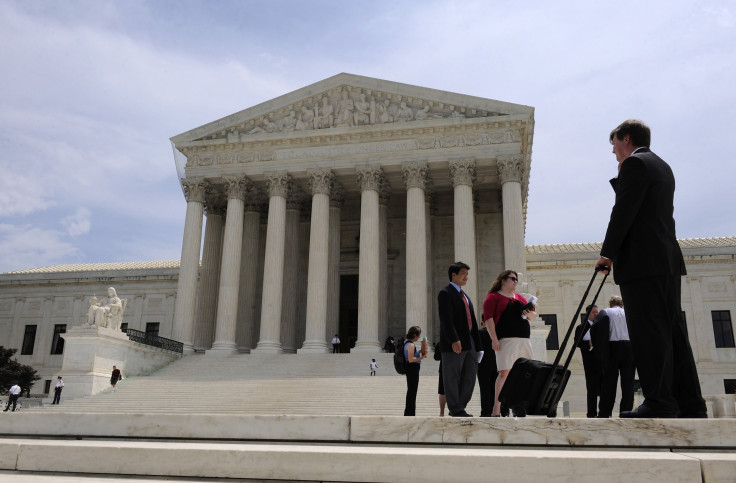Supreme Court To Rule On Contraception Mandate In Hobby Lobby And Conestoga Wood Hearing

The Supreme Court announced on Tuesday that it will hear two cases from Hobby Lobby and Conestoga Wood seeking to overturn an a Affordable Care Act mandate requiring corporations’ insurance policies to provide contraception coverage for women.
Both Hobby Lobby and Conestoga Wood have sued for the ability to opt out of providing contraception as a part of female employees’ health packages for religious reasons. The two corporations received differing opinions from lower courts concerning religious exemptIons to the Affordable Care Act mandate, and are seeking to rectify the issue in their favor.
The 3rd Circuit Court of Appeals found in Conestoga Wood’s case that “for-profit, secular corporations cannot engage in religious exercise,” thus forcing the company to provide contraception for its employees in accordance with the Affordable Care Act Mandate. In Hobby Lobby’s case, however, the 10th Circuit Court of Appeals found that the company has a right to file claims against the mandate under the Religious Freedom Restoration Act.
Conestoga Wood requested that the Supreme Court reverse the decision in its suit, while the Justice Department also requested that the Supreme Court overturn the decision in Hobby Lobby’s case.
The Supreme Court has officially accepted both cases and will hear the two together for a total of one hour of oral arguments sometime in March 2014. The court will likely issue a ruling by the end of June 2014.
Soon after the Supreme Court’s announcement, White House press secretary Jay Carney released a statement on the matter, defending the Affordable Care Act’s contraception mandate:
"The health care law puts women and families in control of their health care by covering vital preventive care, like cancer screenings and birth control, free of charge. Earlier this year, the Obama Administration asked the Supreme Court to consider a legal challenge to the health care law’s requirement that for-profit corporations include birth control coverage in insurance available to their employees. We believe this requirement is lawful and essential to women’s health and are confident the Supreme Court will agree.
We do not comment on specifics of a case pending before the Court. As a general matter, our policy is designed to ensure that health care decisions are made between a woman and her doctor. The President believes that no one, including the government or for-profit corporations, should be able to dictate those decisions to women. The Administration has already acted to ensure no church or similar religious institution will be forced to provide contraception coverage and has made a commonsense accommodation for non-profit religious organizations that object to contraception on religious grounds. These steps protect both women’s health and religious beliefs, and seek to ensure that women and families—not their bosses or corporate CEOs—can make personal health decisions based on their needs and their budgets."
© Copyright IBTimes 2024. All rights reserved.





















